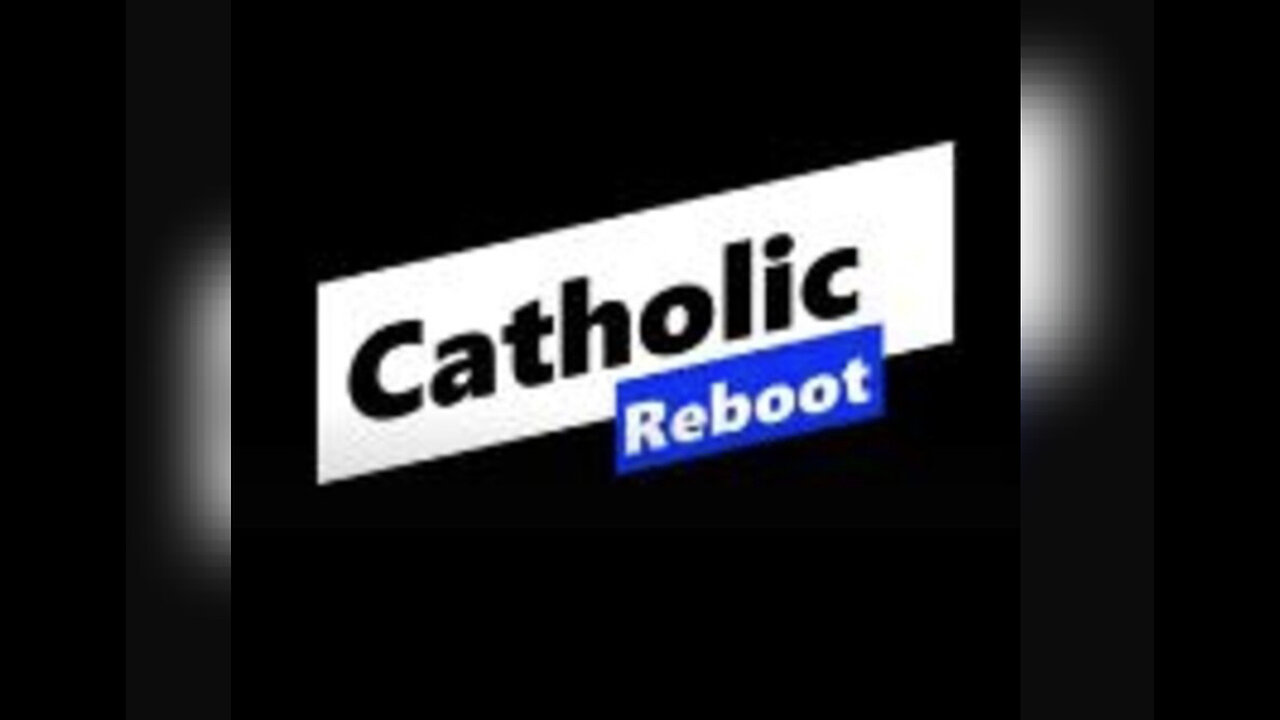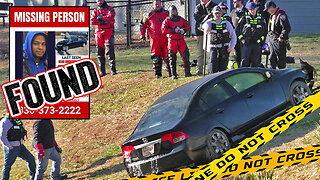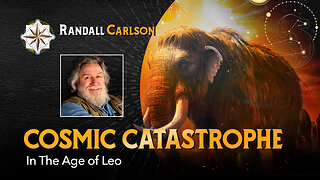Premium Only Content

Epsiode 1567: Father, forgive them, for they know not what they do
Luke 23:34
"And Jesus said, 'Father, forgive them, for they know not what they do.'"
Catholic theology teaches that Jesus, being both fully divine and fully human, offered Himself as a sacrifice for the sins of humanity. In this act, He not only suffered physically, but also bore the weight of the world's sin and offered forgiveness to all who would repent and believe in Him.
The phrase "they know not what they do" is often interpreted to mean that those who were involved in Jesus' crucifixion were acting in ignorance or blindness to the full significance of their actions. They did not fully comprehend that they were crucifying the Son of God.
This statement by Jesus exemplifies the central message of Catholicism: forgiveness, redemption, and reconciliation through the sacrifice of Christ.
From a deeper theological perspective within Catholicism, Christ's statement "Father, forgive them, for they know not what they do" carries several profound implications:
Exemplification of Divine Mercy: This statement is a powerful demonstration of God's boundless mercy. Even in the midst of unimaginable suffering, Jesus seeks forgiveness for His tormentors. This act illustrates that God's mercy knows no bounds and is extended to all, regardless of their sins.
Identification with Human Suffering: By acknowledging the ignorance of those crucifying Him, Jesus aligns Himself with the entire human condition. He experiences the depths of human suffering and demonstrates a profound understanding of human frailty and ignorance. This identification with human suffering is central to the Christian understanding of salvation.
Redemptive Suffering: In Catholic theology, Christ's suffering on the cross is not merely a tragic event, but a redemptive one. Through His suffering and death, Christ offers atonement for the sins of humanity. By forgiving His executioners, Jesus reveals the transformative power of forgiveness and love, which leads to redemption.
Foretelling the Mission of the Church: Some Catholic theologians interpret this statement as an early indication of the Church's mission to spread the Gospel and offer forgiveness to all nations. The Church is seen as the instrument through which Christ's forgiveness and mercy continue to be extended to the world.
Fulfillment of Prophecy: This statement is seen as fulfilling the prophetic words of Isaiah 53:12, which foretells the suffering of the Messiah: "He bore the sin of many, and made intercession for the transgressors."
Invitation to Personal Conversion: It invites individuals to reflect on their own need for forgiveness and conversion. By acknowledging that those who crucified Him were acting in ignorance, Jesus highlights the potential for repentance and conversion even in the most hardened hearts.
Call to Imitate Christ's Forgiveness: It serves as a model for Christians to emulate in their own lives. Believers are called to extend forgiveness, even in the face of great adversity, following Christ's example.
Overall, Christ's statement on the cross encapsulates the heart of the Christian message: God's unfathomable love and mercy manifested through the redemptive suffering of Christ, and the invitation for all humanity to turn towards Him in repentance and faith.
However, the concept of forgiveness and intercession on behalf of others is present in various ways throughout the Old Testament. For example:
Abraham's Intercession for Sodom and Gomorrah (Genesis 18:22-33): Abraham pleads with God to spare the cities of Sodom and Gomorrah for the sake of righteous individuals who might be living there.
Moses' Intercession for Israel (Exodus 32:30-32): After the Israelites sinned by worshipping the golden calf, Moses intercedes on their behalf, asking God to forgive them or else blot him out of His book.
Job's Intercession for His Friends (Job 42:7-9): Job intercedes for his friends who had spoken wrongly about God, and God forgives them because of Job's prayer.
Isaiah's Prophecy of the Suffering Servant (Isaiah 53:12): This prophetic passage speaks of a servant who will bear the sins of many and make intercession for transgressors.
Many great saints in the history of the Catholic Church have reflected on and provided their insights into Christ's statement on the cross, "Father, forgive them, for they know not what they do." Here are a few notable examples:
St. Ambrose of Milan (c. 340-397):
St. Ambrose emphasized the depth of Christ's mercy and His willingness to forgive even the gravest of sins. He saw in this statement a profound example of forgiveness and urged Christians to imitate this mercy in their own lives.
St. Augustine of Hippo (354-430):
St. Augustine, in his writings, highlighted the ignorance of those who crucified Christ, emphasizing that they did not understand the gravity of their actions. He saw this as an example of God's willingness to forgive those who sin out of ignorance.
St. Thomas Aquinas (1225-1274):
St. Thomas Aquinas, in his Summa Theologica, expounded on the significance of Christ's prayer from various theological angles. He delved into topics such as Christ's compassion, His atonement for sin, and the role of human ignorance in sin.
St. Therese of Lisieux (1873-1897):
St. Therese, known as the "Little Flower," reflected on Christ's statement in light of her "Little Way." She saw in this prayer an example of how even the smallest acts of love and forgiveness can have a profound impact on the world.
St. Maximilian Kolbe (1894-1941):
St. Maximilian Kolbe, who gave his life to save another at Auschwitz, saw in Christ's statement the epitome of self-sacrificing love. He believed that this act of forgiveness exemplified the call for Christians to love one another unconditionally.
But knowing the true hearts of man do we both forgive and then subject ourselves to their cruelty again. Absolutely not. Instead we see it and them for what they are, and we avoid both occasions and pray for them. When we find ourselves in this disastrous Catholic Church they call the Modern Novus Ordo Church we must walk away from it and not support its efforts make a ridicule of Christ the King. Participating in that travesty of a mass is only condoning their disrespect and putting more nails into Christ’s hands and feet, more lashes on his back, more thorns in his crown and deeper spear wounds into his side. No my friends its times to increase your devotions and return to the mass of all ages and leave these dead to bury themselves.
Father Forgive them for they know not what they do to your mystical body!
-
 8:36
8:36
China Uncensored
3 hours agoIs China’s EV Industry Collapsing?
49K53 -
 4:17:00
4:17:00
Tundra Tactical
19 hours ago $18.00 earnedSHOT SHOW 2025!!!!!! Whats Are We Looking Forward To Most
121K16 -
 22:53
22:53
Film Threat
1 day agoA TRIBUTE TO VISIONARY DIRECTOR DAVID LYNCH | Film Threat News
21.3K5 -
 20:30
20:30
Exploring With Nug
1 day ago $2.14 earnedMissing Father of 2 FOUND Underwater In Shallow Pond!
14.5K4 -
 19:19
19:19
This Bahamian Gyal
1 day agoThe View PRAISES Michelle Obama for DITCHING TRUMP inauguration, "when they go LOW, go even LOWER"
12.8K19 -
 14:25
14:25
Degenerate Jay
20 hours ago $3.49 earnedThe Flash Movie Failed Because People Hate The Character? Sure.
40.3K10 -
 28:30
28:30
CharLee Simons Presents Do Not Talk
6 days agoSam Anthony from YourNews.com (with host CharLee Simons)
28.4K1 -
 52:34
52:34
PMG
16 hours ago $1.90 earnedHannah Faulkner and Steve Friend | EXPOSE THE FBI CORRUPTION - KASH PATEL
20.1K6 -
 25:33
25:33
marcushouse
1 day ago $37.43 earnedStarship Exploded! What Went Wrong? Flight Test 7 Explained
182K60 -
 1:00:50
1:00:50
Squaring The Circle, A Randall Carlson Podcast
1 day ago#035 Cosmic Catastrophe In The Age Of Leo - Squaring The Circle: A Randall Carlson Podcast
115K32